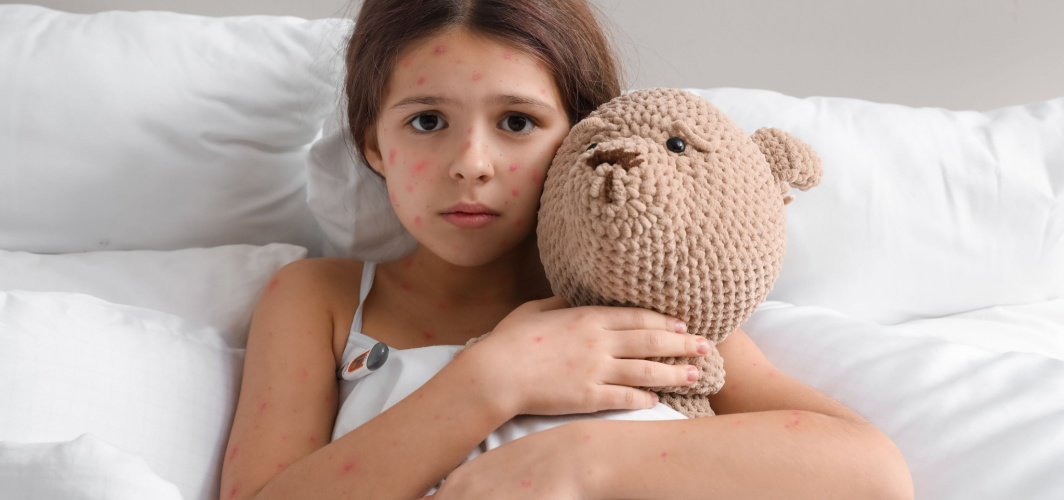- Home
- Blog
- Mom & Baby Care
Delayed Development Milestones In Babies: Checklist And Warning Signs
Mom & Baby Care
Delayed Development Milestones In Babies: Checklist And Warning Signs
By Apollo 24|7, Published on- 08 May 2023, Updated on -16 June 2023
Share this article
0
0 like

Most parents may have numerous questions about their baby's growth pattern and the milestones they achieve throughout that journey. Babies tend to undergo a lot of changes during their developmental stages. While most babies reach expected milestones on time, some may experience delays.
These milestones are typical landmarks set by experts in line with the development of a baby. Depending on these landmarks, parents, and doctors can determine if a baby's development is on track or delayed.
However, no two babies are the same. Therefore, parents should expect their babies to grow at their own speed within the set range of time. For instance, a prematurely born child (born before 37 weeks of gestation) would take more time to reach the milestones than expected. Similarly, a medical condition or a family history of developmental delays may lead to slowed growth and development. Let us understand more about the developmental milestones and when should parents be worried.
Typical Developmental Milestones
Child development specialists have set a timeline within which babies can master basic skills, including cognitive, motor, emotional, and social skills. So, parents may not worry as long as a child reaches a given landmark in the normal range or timeline.
|
Baby Milestone Checklist |
||||
|
2 Months |
Social |
Language |
Cognitive |
Motor |
|
1. Starts smiling 2. Can calm themself for a short period 3. Looks at the mother or father |
1. Makes babbling noises 2. Coos 3. Turns toward sounds |
1. Notices people's faces 2. Can follow things with their eyes 3. Recognizes people 4. Cries or gets bored |
1. Can hold their head up 2. Tries to push up while lying on stomach 3. Moves legs and arms smoothly |
|
|
4 Months |
1. Smiles at people 2. Learns and likes to play with others 3. May start crying if the play stops 4. May copy facial expressions, especially frowning and smiling |
1. Tries to speak by babbling 2. Copies the sounds it hears 3. Different cry patterns for pain and hunger |
1. Communicates being happy or sad 2. Responds to attention and love 3. Reaches for toys and other playthings with one hand 4. Notices moving objects from side to side 5. Identifies familiar people and objects from a distance |
1. Can keep head steady without support 2. May roll over 3. Holds a toy properly and plays with it 4. May swing along with hanging toys |
|
6 Months |
1. Can differentiate between known faces and strangers 2. Loves playing with parents 3. Looks in the mirror 4. May understand and respond to emotions |
1. Responds to their name 2. Makes sounds in response to sounds 3. Makes different sounds to show sadness and joy 4. May start babbling with vowels (oh, ah, eh) and consonants (b, m) sounds |
1. Looks at nearby objects 2. Takes different objects to the mouth 3. Gets curious about things around and tries to reach them 4. Passes things from one hand to the other |
1. Rolls over the front to back and vice-versa 2. Starts sitting (unsupported) 3. Weighs on legs for support when standing 4. Rocks to and fro |
|
9 Months |
1. May not like or be afraid of unfamiliar faces 2. May become clingy to parents 3. Know their toys, especially their favourite ones |
1. Understands the sound 'no' 2. Makes different sounds 3. Points at objects 4. Copies others' gestures and sounds |
1. Watches objects as they fall 2. Follows the path of a falling object 3. Tries playing peek-a-boo 4. Moves objects smoothly 5. Picks and hold things |
1. Crawls 2. Sits unsupported 3. Stands with support 4. Take the sitting position |
|
12 Months |
1. May be nervous or shy with strangers 2. May cry when parents are away or leave 3. Shows fear 4. Tries to get attention by repeating actions or sounds 5. Plays various games |
1. Responds to requests 2. Tries to speak the words parents often say 3. Says mom or dad 4. May use exclamatory expressions 5. Shakes head for conveying yes and no 6. Waves to say goodbye |
1. Understands and follows simple instructions 2. Explores things 3. Pinpoints at the right object when asked 4. Uses things properly, for eg: drinking water from a tumbler |
1. May stand unsupported 2. May walk a little without holding anything 3. Pulls up to get up 4. Walks holding onto support |
Signs of Delayed Development in a Baby
If the overall development is slow or does not seem to progress, it may indicate delayed development.
Here are some signs that may require medical attention:
|
Signs of Delayed Development in Babies |
|
|
2 Months |
The baby may not… 1. React to sounds 2. Look at objects with their movement 3. Hold their head up when lying on the stomach 4. Smile 5. Bring fingers to mouth |
|
4 Months |
The baby may not… 1. Smile at others 2. Look at objects as they move 3. Hold their head steadily 4. Move eyes (one or both) on all sides 5. Put things in their mouth 6. Push their legs down when standing on a hard surface |
|
6 Months |
The baby may not… 1. Hold or try to hold an object within reach 2. Show signs of affection 3. React to nearby sounds and noises 4. Produce vowel sounds 5. Roll over the front to back and vice-versa 6. Squeal |
|
9 Months |
The baby may not… 1. Sit with support 2. Make sounds or babble 3. Shift weight on legs when standing with help 4. React to their name 5. Look like they can identify familiar faces 6. Play 7. Look when pointed in a particular direction or object |
|
12 Months |
The baby may not… 1. Stand with support 2. Crawl 3. Speak single words, such as mom or dad 4. Make gestures like shaking the head or waving 5. Point at objects 6. Look for things parents hide intentionally to draw the child's attention 7. Retain skills once learned or developed |
Parents should keep in mind that every child is different. Some may reach the developmental milestones before or on time, while others may pick up the pace later. In some cases, a child can attain different landmarks at different points in time. However, having a fair idea about the warning signs indicating delayed developmental milestones in a baby is advisable.
Consult Apollo's Expert Paediatricians
FAQs
1. How common are developmental delays in India?
According to the World Health Organization (WHO), nearly 5% of children under the age of 14 years experience a developmental delay. The prevalence of developmental delay in kids under two years of age is around 2%.
2. Is developmental delay a lifelong concern?
Developmental delays are likely to affect the day-to-day functioning of a child. In most cases, it is a lifelong concern. However, with proper treatment, these can be managed well.
3. Is development delay a defect?
Delays in the development of a baby may happen due to various factors, including chronic health conditions.
4. When do developmental delays raise a concern?
If the signs persist over several months and the child fails to develop language, motor, or social skills, parents should seek help.
5. Does a developmental delay always indicate autism?
Babies with autism do experience delays in development in one or multiple areas. However, not every kid with issues in development has autism.
Consult Apollo's Expert Paediatricians
Medically reviewed by Dr Sonia Bhatt.
Services
Mom & Baby Care
Leave Comment
Services
Recommended for you

Mom & Baby Care
Here's How To Get A Flat Tummy Post Pregnancy
Learn all about postpartum diet, exercises and other techniques to get a toned tummy after childbirth.

Mom & Baby Care
Moms-to-be and Moms: Mental health matters
Motherhood brings both joy and sadness. A new mother juggles her physical and mental health. Taking care of mental health with a good approach may help. #ApolloPharmacy #MomsMentalHealth #BeWithHer #CareForHer #GiveMomABreak

Mom & Baby Care
How To Care For Your Child When They Get Chickenpox?
Chickenpox is a contagious disease, and since the development of the chickenpox vaccine, the cases have declined significantly. However, by following some simple steps, you can take care of your child at home.
Subscribe
Sign up for our free Health Library Daily Newsletter
Get doctor-approved health tips, news, and more.


